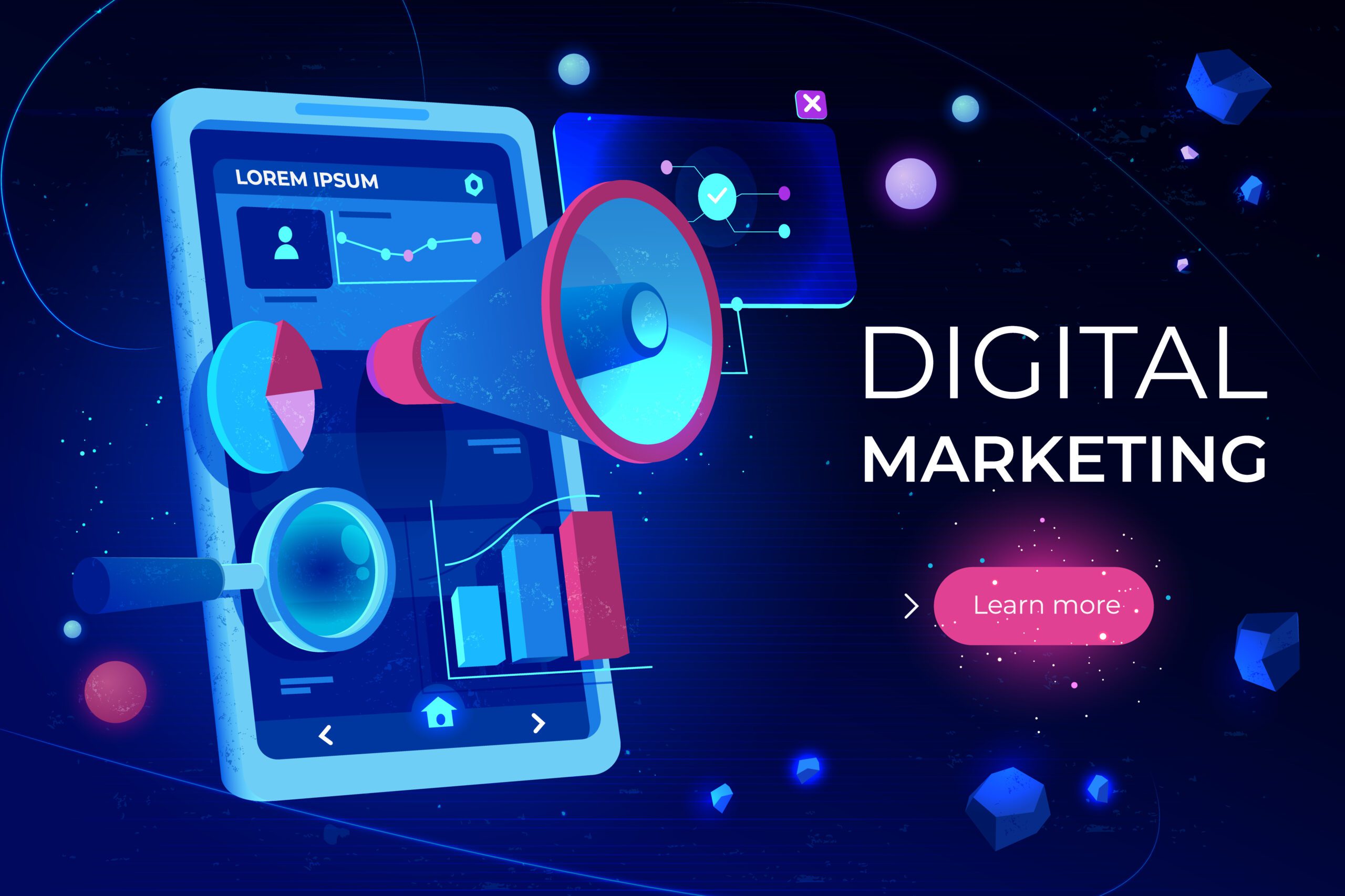table of content.
- Introduction
- Understanding Digital Marketing Excellence
- Creating a Strong Digital Presence 3.1. Building a User-Friendly Website 3.2. Search Engine Optimization (SEO) Strategies 3.3. Engaging Content Creation
- Leveraging Social Media Platforms 4.1. Identifying the Right Platforms 4.2. Creating Shareable Content 4.3. Running Targeted Ads
- Email Marketing for Customer Retention 5.1. Building an Email List 5.2. Crafting Personalized Email Campaigns 5.3. Automation for Efficient Communication
- Embracing Influencer Marketing 6.1. Partnering with Relevant Influencers 6.2. Influencer Content Collaboration 6.3. Measuring Influencer Marketing Success
- Harnessing the Power of Analytics 7.1. Setting Measurable Goals 7.2. Utilizing Data-Driven Insights 7.3. Continuous Optimization
- Emphasizing Customer Experience 8.1. Enhancing Website User Experience 8.2. Providing Excellent Customer Support
- Integration of Video Marketing 9.1. Creating Engaging Video Content 9.2. Video Distribution Channels
- Mobile Marketing Strategies 10.1. Mobile-Optimized Websites and Apps 10.2. SMS and Push Notification Campaigns
- Building Partnerships and Collaborations 11.1. Collaborative Content Creation 11.2. Joint Promotions and Giveaways
- Leveraging Artificial Intelligence (AI) 12.1. Personalization with AI 12.2. AI-Powered Customer Support
- Staying Ahead of Competitors 13.1. Competitor Analysis 13.2. Innovating and Adapting
- Measuring and Evaluating ROI 14.1. Key Metrics to Track 14.2. Adjusting Marketing Strategies
- Conclusion
Driving Business Growth Through Digital Marketing Excellence
In today’s fast-paced and highly competitive business landscape, establishing a robust online presence is paramount to achieving significant growth and success. The advent of digital marketing has transformed the way businesses connect with their target audience, making it more important than ever to leverage digital marketing excellence for driving business growth. In this article, we will explore various strategies and tactics to excel in digital marketing, taking your business to new heights.
Understanding Digital Marketing Excellence
Digital marketing excellence involves a comprehensive approach to harnessing various online channels effectively. It encompasses a range of activities that aim to increase brand visibility, attract leads, and convert them into loyal customers. To achieve excellence, businesses must adopt a multi-faceted approach that covers diverse aspects of digital marketing.
Creating a Strong Digital Presence
3.1. Building a User-Friendly Website
A business’s website serves as its virtual storefront, and a user-friendly website is essential for a positive user experience. Ensure that your website is easy to navigate, visually appealing, and optimized for all devices.
3.2. Search Engine Optimization (SEO) Strategies
Implementing SEO strategies is crucial to rank higher in search engine results, driving organic traffic to your website. Conduct thorough keyword research and optimize your content accordingly.
3.3. Engaging Content Creation
Compelling and informative content is the backbone of any successful digital marketing strategy. Create valuable blog posts, articles, videos, and infographics that resonate with your target audience.
Leveraging Social Media Platforms
4.1. Identifying the Right Platforms
Not all social media platforms are suitable for every business. Identify the platforms where your target audience is most active and tailor your content accordingly.
4.2. Creating Shareable Content
Encourage social media users to share your content by creating engaging and share-worthy posts. User-generated content and contests can also boost shareability.
4.3. Running Targeted Ads
Social media advertising allows you to reach a highly targeted audience. Use the platform’s ad targeting options to maximize your ROI.
Email Marketing for Customer Retention
5.1. Building an Email List
An email list is a valuable asset for businesses. Offer incentives such as exclusive content or discounts to encourage visitors to subscribe.
5.2. Crafting Personalized Email Campaigns
Segment your email list based on customer preferences and behaviors. Send personalized content and offers that resonate with each segment.
5.3. Automation for Efficient Communication
Use email marketing automation tools to send timely messages, such as welcome emails, abandoned cart reminders, and post-purchase follow-ups.
Embracing Influencer Marketing
6.1. Partnering with Relevant Influencers
Identify influencers who align with your brand values and have a significant following in your target market. Partner with them to expand your reach.
6.2. Influencer Content Collaboration
Collaborate with influencers to create authentic and engaging content that showcases your products or services.
6.3. Measuring Influencer Marketing Success
Set clear objectives for influencer campaigns and measure their impact on brand awareness, engagement, and conversions.
Harnessing the Power of Analytics
7.1. Setting Measurable Goals
Define specific, measurable, achievable, relevant, and time-bound (SMART) goals for your digital marketing efforts.
7.2. Utilizing Data-Driven Insights
Analyze data from various marketing channels to gain insights into consumer behavior and preferences. Use this data to optimize your strategies.
7.3. Continuous Optimization
Digital marketing is an iterative process. Continuously test and refine your strategies based on data-driven insights.
Emphasizing Customer Experience
8.1. Enhancing Website User Experience
A seamless and enjoyable website experience keeps visitors engaged and encourages them to explore further.
8.2. Providing Excellent Customer Support
Promptly address customer inquiries and concerns to build trust and loyalty.
Integration of Video Marketing
9.1. Creating Engaging Video Content
Videos are highly engaging and shareable. Create videos that showcase your products, offer tutorials, or tell your brand story.
9.2. Video Distribution Channels
Leverage platforms like YouTube, TikTok, and Instagram Reels to reach a wider audience.
Mobile Marketing Strategies
10.1. Mobile-Optimized Websites and Apps
Ensure your website and apps are optimized for mobile devices, as more users access the internet through smartphones.
10.2. SMS and Push Notification Campaigns
Send personalized SMS and push notifications to keep your audience informed about promotions, new products, or events.
Building Partnerships and Collaborations
11.1. Collaborative Content Creation
Join forces with complementary businesses or influencers to create valuable and exciting content together.
11.2. Joint Promotions and Giveaways
Run joint promotional campaigns or giveaways to expand your reach and customer base and offer added value to your audience.
Leveraging Artificial Intelligence (AI)
12.1. Personalization with AI
AI-powered tools can analyze customer data and behavior to deliver personalized recommendations and content, enhancing the overall customer experience.
12.2. AI-Powered Customer Support
Implement chatbots and virtual assistants to provide instant and round-the-clock customer support, resolving queries promptly.
Staying Ahead of Competitors
13.1. Competitor Analysis
Regularly analyze your competitors’ digital marketing strategies to identify gaps and opportunities for improvement.
13.2. Innovating and Adapting
Stay up-to-date with the latest trends and technologies in digital marketing. Be open to experimenting with new approaches to gain a competitive edge.
Measuring and Evaluating ROI
14.1. Key Metrics to Track
Determine the key performance indicators (KPIs) relevant to your business and track them to measure the success of your digital marketing efforts.
14.2. Adjusting Marketing Strategies
Based on the data collected, adjust your strategies to optimize results and ensure a higher return on investment.
Conclusion
Embracing digital marketing excellence is essential for businesses seeking sustainable growth and success in today’s digital age. By creating a strong digital presence, leveraging social media, implementing email marketing, and harnessing the power of analytics, businesses can connect with their target audience effectively. Additionally, incorporating video marketing, AI, and emphasizing customer experience can further boost engagement and loyalty. Continuous monitoring, innovation, and staying ahead of competitors are crucial for achieving long-term success.
In conclusion, digital marketing excellence is a dynamic and ever-evolving journey that requires constant adaptation and improvement. By implementing the strategies outlined in this article, businesses can drive substantial growth and achieve their goals in the digital realm.
FAQs
- How long does it take to see results from digital marketing efforts? The timeline for seeing results can vary based on various factors, such as your industry, the competitiveness of keywords, and the effectiveness of your strategies. In some cases, you may start seeing improvements within a few weeks, while significant results may take several months.
- Is influencer marketing suitable for all businesses? Influencer marketing can be beneficial for many businesses, but its suitability depends on your target audience and marketing objectives. It works best when you can find influencers who align with your brand values and have a genuine connection with your target market.
- How can I measure the success of my email marketing campaigns? Track key metrics such as open rates, click-through rates, conversion rates, and unsubscribe rates to assess the performance of your email campaigns. Analyze the data and make adjustments as needed.
- What role does artificial intelligence play in digital marketing? AI can enhance personalization, automate tasks like customer support, and provide valuable insights from vast amounts of data, helping businesses make data-driven decisions.
- Why is mobile marketing important? Mobile marketing is crucial because an increasing number of people access the internet through their mobile devices. To reach a broader audience and enhance the user experience, businesses must optimize their content and campaigns for mobile users.


